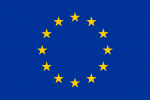On Culatra Island, located in the Algarve region of Portugal, an innovative project is underway that promises to revolutionize the energy and environmental landscape of the area. The Renewable Energy Community (REC) Pilot Project , known as CULATRA 2030, is an initiative led by the University of Algarve (UALG), in collaboration with the Island’s Residents Association (AMIC) and various local entities.
CULATRA 2030 aims to test the technical and economic viability of a REC, incorporating innovative technologies that could influence the legal and regulatory development of the sector. Culatra was chosen as one of the six european pilot islands to develop an Agenda for Energy Transition under the scope of Clean energy for EU islands.
Implementing the ambitions of the Smart Specialization Strategy in the Algarve, this project uses a Participatory Community Diagnosis to tailor specific solutions to the island’s needs and capitalize on its assets.
The CULATRA 2030 team, composed of researchers from the Center for Marine and Environmental Research and the Higher Institute of Engineering at UALG, Make it Better, and members of the three associations of the Fishing Nucleus of Culatra, actively works to empower the community in organizing a Cooperative for Island Sustainability.
In the context of this project, AMIC has been leading the decarbonization of fishing activities, with a special focus on aquaculture dedicated to bivalves.
With the support of the MAR 2020 Program, several projects have been implemented, including a solar-powered boat designed to support local shellfish farmers, photovoltaic equipment for fishing support, energy storage equipment, and a solar boat charging unit. These initiatives aim to drive the energy transition and contribute to the decarbonization of Ria Formosa, promoting the conservation of its biodiversity.
Source: culatra2030.pt




